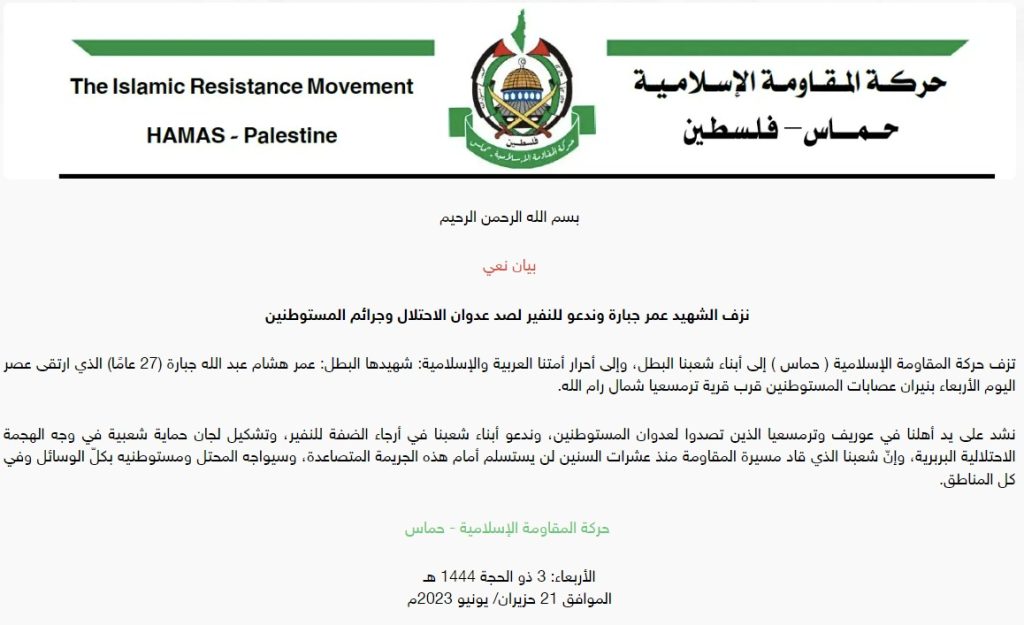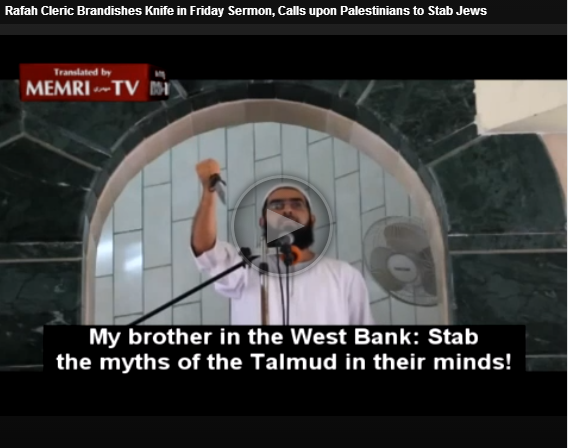A Guardian article by Bethan McKernan and Sufian Tah reported on the death of a Palestinian named Hanan Qattin in unclear circumstances during riots by Israeli settlers in the West Bank town Turmus Ayya, triggered by the killing by Hamas gunmen of four Israelis outside the community of Eli.
The piece (‘Nowhere in Palestine is free’: West Bank villagers defenceless against rising settler violence, July 1) includes the following strapline:
The killing of a young father during a rampage through his quiet village underlines the impossible options for Palestinians in the occupied territories
It also includes the following photo:

The piece begins thusly:
Although it was the second day of Eid al-Adha, there were no celebrations at the family home of Omar Abu Qattin in the occupied West Bank village of Turmus Ayya.
The week before, after rescuing several children from houses being attacked by Israeli settlers during an unprecedented rampage through the area, the 27-year-old was shot and killed – most likely by an Israeli soldier. The army said it arrived to extinguish the fires and opened fire after Palestinians threw rocks, although the exact circumstances remain unclear.
On Thursday, the father of two’s family was still receiving condolence visits, men and women sitting in separate areas in the shade of the garden. “I am sad but very proud of how brave he was,” said Omar’s mother, Hanan, 50. “If he did not go to help, the situation could have been much worse.”
What the Guardian doesn’t tell readers is that Qattin was also a member of Hamas, a designated terror organisation, which claimed him as their “martyred hero”.

Following communication from CAMERA’s Israel office, Times of Israel editors commendably updated an article to note that Qattin was a Hamas member. Likewise, Al Hurra, a publicly-funded Arabic-language American network, also added information about Qattin’s Hamas membership in response to correspondence from CAMERA Arabic
We’ve complained to Guardian editors asking that they similarly add this pertinent information to their article.
Related
Financial Times recycles conflict ‘root cause’ misinformation




